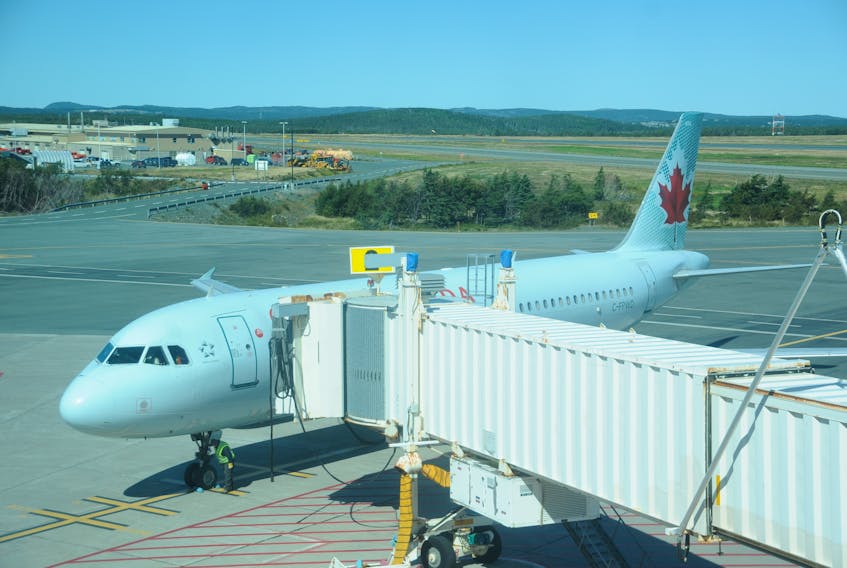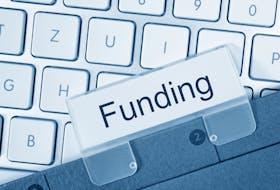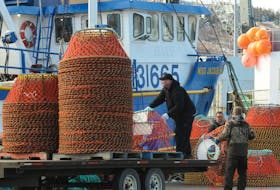ST. JOHN'S, N.L. — The COVID-19 pandemic has decimated the airline industry, putting a stop to most international travel and severely limiting domestic flights. Some smaller airports, like the one in Sydney, Nova Scotia, now have no flights at all.
But with the vaccination rollout offering hope that Atlantic Canada and the rest of the world can eventually move on from the pandemic, will we be able to go back to planning trips just like we used to pre-pandemic?
Isabelle Dostaler, the dean of Memorial University’s business school, isn’t sure yet. As an academic, Dostaler has spent many years researching aviation management and the intersection between transportation and regional economic development. She’s discussed the issue with people in tourism and the aviation sector, and Dostaler has heard from some optimistic voices.
That said, she knows this will ultimately depend on travellers themselves. And some of those, based on what’s been learned during the pandemic, may not book flights as much as they did before the pandemic.
“For example, businesses and universities discovered very efficient ways to work together from a distance,” Dostaler said. “Maybe business travel won’t be as necessary. At the same time, some will argue you have to shake hands once in a while and see people face to face to be able to develop trust and a business relationship.”

Potential price increase
If business travellers do not come back, Dostaler expects this would translate into higher prices for other customers looking to fill seats, given business class fares allow airlines to offer recreational travellers cheaper tickets.
Specific to the Atlantic region, a lot of direct flights have been suspended. Knowing airlines use what she calls “very dynamic models” to determine routes and pricing, Dostaler knows route suspensions were predicated on financial losses.
“It’s interesting how the whole international travel, in a sense, is the thing that subsidized domestic routes,” she added. “Airlines are willing to lose money on domestic routes, because they know they will make some on international ones. Their game is to go get all these passengers in the secondary airports, bring them to the hub and then send them away on these international destinations. Now, if you don’t have the international travel, and this has been cut significantly, then you cannot afford to lose money on the regional routes.”
“It’s tough on all the actors in the system right now. Airports as well, not just airlines.” — Isabelle Dostaler
Figuring out when some of those suspended routes may come back is hard to pin down, she noted, because there are so many interconnected pieces at play.
“It depends how things pick up again, and if the public goes back to its old habits, then there will be demand and service will come back,” she said. “It’s tough on all the actors in the system right now. Airports as well, not just airlines.”
Passenger traffic
The struggle for airports has been well documented, with countless layoffs resulting from a lack of passenger traffic. Ticket prices are not the only things headed higher. Airports, including those in Halifax and St. John’s, are raising airport improvement fees charged to all travellers.
“Airports need to earn money to be able to maintain facilities,” she said. “Everything is frozen. It’s really tough. How and when, that’s the piece that’s hurting — how uncertain things are at the moment.”
As to whether some airports are at risk of closing for good, Dostaler said small airports with limited passenger traffic have communities built around them that will fight for their future.
“Having an airport is, in a sense, your right to transportation,” she said. “There’s no legal right, but it’s a legitimate right that any Canadian citizen has, even in remote communities, to be connected to an airport. If it was a completely private business, then yes, maybe some will disappear.”

Monopoly concern
As turmoil in the airline sector drags on, Dostaler suggests Air Canada could come out of the pandemic in a stronger position if it were to outlast competitors. This, she said, would be bad for the travelling public and leave Canada’s largest airline company with a near monopoly.
“They were in almost a monopoly position before,” she said, noting the company is close to completing a transaction to take over Montreal-based tour operator Air Transat. “They’re likely to be in a very strong position when things pick up again.”
There have been instances in the relatively recent past where air travel faced down significant challenges. Dostaler points to the SARS outbreak in the early 2000s — an event that forced Air Canada to file for bankruptcy protection — and the uncertainty following the 9-11 terrorist attacks as events that left the industry in a tight spot.
With the latter situation, Dostaler noted safety measures were ultimately introduced and air travel resumed relatively unscathed. Dostaler was a faculty member at Concordia University when Air Canada’s troubles during the SARS outbreak made headlines, and there were colleagues of hers who thought the company was finished.
“But it’s amazing how Air Canada was reborn as a slightly smaller carrier, but very efficient,” she said. “They had really extraordinary years, very good years, and that’s something we would not have thought of back then.”

Return to normal
As for when things might get back to normal for the airline industry, Dostaler considers that hard to pin down. Her own mind has gone a bit back-and-forth on this question amidst the vaccine rollout.
“Each of us, we all have our own level of anxiety,” she said. “Up until maybe two weeks ago, not because of my aviation expertise, but just as a traveller myself, maybe two weeks ago I felt good about it. Oh, the vaccine will come and it will be fine.”
But delivery and production issues have recently hindered the vaccine rollout and new a variant of the coronavirus has complicated matters. Combined with the fact there will be a waiting period between getting a first and second dose of the vaccine, Dostaler said there are too many variables in the way of guesswork.
“It will pick up again when we feel safe again,” she said.
Andrew Robinson is a business reporter in St. John's. [email protected] | @CBNAndrew









